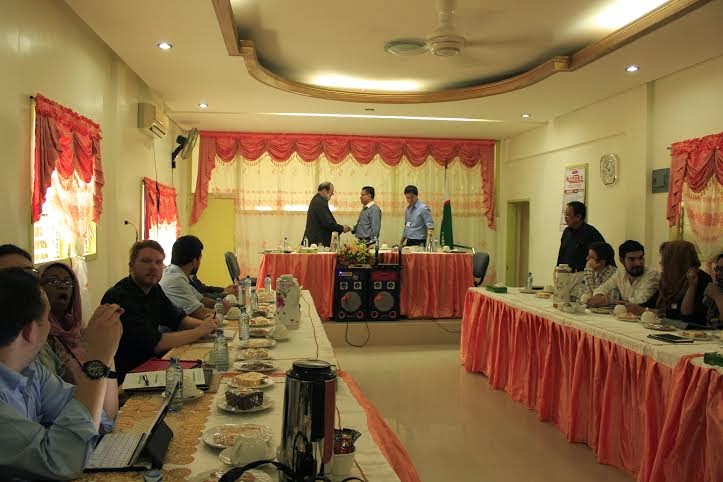
COTABATO CITY – An 18-member delegation from the graduate program on Conflict Management of the Johns Hopkins University-School of Advanced International Studies arrived Friday in the central Mindanao city of Cotabato City for a three-day visit hosted by the Mindanao Human Rights Action Center or MinHRAC.
The group, headed by Professors Emeritus P. Terrence Hopmann and I. William Zartman, aims to study the evolution of the peace process through the signing of the October 2012 Bangsamoro Framework Agreement, as well as the prospects and challenges attendant to its full implementation.
The contingent of scholars from four different continents, composed of 5 Americans, 7 Europeans, 2 Asians, 1 Middle-Eastern, and 1 African, plan to engage in meaningful dialogues various key actors and stakeholders in the peace process including officials of the Moro Islamic Liberation Front- Central Committee and the Bangsamoro Islamic Armed Forces, the Autonomous Region in Muslim Mindanao, the Armed Forces of the Philippines, the newly-created Bangsamoro Transition Commission, the International Monitoring Team, Cardinal-designate Orlando Quevedo, the Bangsamoro Development Agency and Bangsamoro Leadership and Management Institute, as well as the delegation counterparts from 3 local universities and civil society leaders.
The activity is part of the Johns Hopkins University program held every January which aims to give its students an opportunity to understand the background and causes of the conflict and to apply the principles of conflict management, resolution, and post-conflict peace building to a real conflict setting. In previous years, they have been to Kosovo, Northern Ireland, Haiti, Cyprus, and other countries.
In 2011, Johns Hopkins University-School of Advanced International Studies, in coordination with MinHRAC, visited Mindanao to study the aftermath of the collapse of the 2008 Memorandum of Agreement on Ancestral Domain.
MinHRAC’s Executive Director Zainudin Malang said that part of their efforts to bridge the divide in Mindanao is to bring scholars and journalists to the southern region so that they may hear voices that are rarely heard.
“This is why we have hosted in recent months and years such other foreign groups as the Third Party Monitoring Team, correspondents of various news agencies, and officials of aid agencies. Hopefully by helping facilitate a greater understanding of the conflict and peace process, MinHRAC is also contributing to lasting peace,” Malang said.

